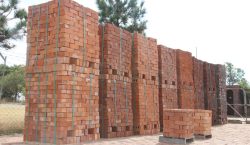

AS Transnet Freight Rail (TFR) works to normalise operations in the wake of a wage strike, it is counting the cost of cable theft, and vandalism as criminals took advantage of the industrial action, with replacement cable expected to cost as much as R24 million on one key corridor alone.
During the two-week strike, which was called off last Wednesday, the state-owned rail operator said it not only experienced a considerable loss in volume throughput – as much as 82% in one week – but it also suffered an increase in copper cable theft. This, in turn, resulted in 257 trains being stranded, or “staged”, across the network, although 234 of these had been cleared as of Tuesday.
The container corridor was hit the hardest with a 22% increase in cable theft on this part of the network during the strike and some 12kms stolen during this time with an estimated replacement cost of R24 million.
The remaining 23 staged trains are on this corridor which serves as a key logistics enabler linking the Port of Durban with the Gauteng economic hub.
Rudzani Ligege, managing executive of the container corridor, said that security had been beefed up, especially between Mooi River and Lions River, which has proved to be a hotspot.
“There’s been a number of arrests that have been made in that particular area and also some of the recovery of the cables that have been stolen,” he said. “So we’re hoping that in the next eight hours, we should start seeing improvement in that particular area.”
Marius Bennett, general manager for safety and security at TFR, said the company had anticipated there could be an escalation of theft and vandalism during the strike and increased security resources in response.
While cable theft was kept under control on other parts of the network, it admittedly surged on the container corridor in the identified hotspot.
“We have increased our drone capacity in that area … we have put in an additional task team, we’ve put in observation posts, we’ve engaged the SAP,” said Bennett. “With almost every incident happening in that area, we are making arrests. So it’s not that these guys are just going in there, cutting the cable and getting away with it.”
Bennett said security initiatives at TFR have seen cable theft incidents drop 18% in the year to date, with the length of cable stolen reduced by 32%.
“There is still huge room for improvement. We are not saying that [it] is under control. But we are working closely with law enforcement and beefing up security measures,” he said. “It is improving, and it will continue to improve.”
The container corridor has also been severely impacted by the KwaZulu-Natal floods earlier in the year, which caused the line to shut for several weeks. There are currently only five slots running in each direction.
The corridor is, however, part of a pilot programme to sell slots to third-party operators for which the preferred bidders are expected to be announced by the end of November, Ligege said.
In resuming operations after the strike, TFR first ensured the safety of the operations by inspecting the network and rolling stock and preparing employees to return to work.
While TFR has sought to get the trains moving in a fair and transparent manner, TFR CEO Sizakele Mzimela said priority was given to first moving trains carrying hazardous materials and perishable goods off the lines. The parastatal is now working to catch up and normalise operations, with the North Corridor and Iron Ore Corridor already operating at normal levels as of Sunday, Mzimela said.
Asked if Transnet could not have managed the situation better to avoid a strike entirely, Mzimela said: “We believed that we were doing all we could, and we thought that we had a partnership where we were engaging with openness and transparency in everything that we’re trying to do. Unfortunately, in the end, we found ourselves having to take a strike.” – news24.com